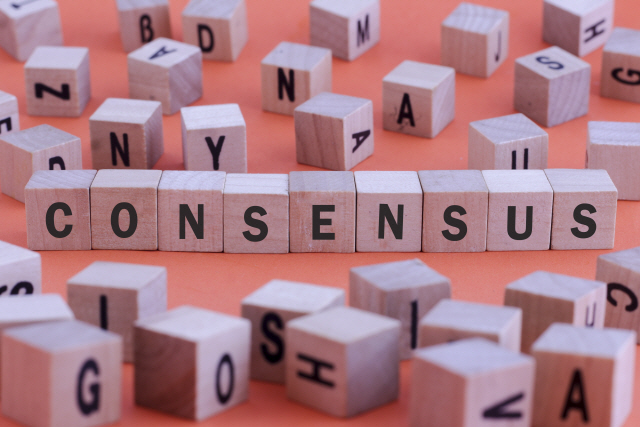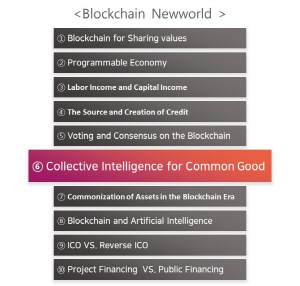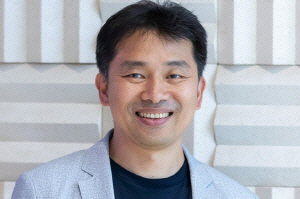


In the last article, I talked about consensus in blockchain and the governance system that manages consensus.
In this article, I‘m going to discuss collective intelligence for the common good.
Many blockchain projects talk about collective intelligence. We have trust in the virtuous cycle where decisions are made based on the opinions of many individuals.
In BOScoin, public financing is determined by voting. There’s this question that comes up every time I explain about public financing, including in the last meetup in Seoul. It is “When investing in a specific project is a territory of financial experts, how is it possible for the general public to make a decision by voting?”
The answer to this question is collective intelligence.
Using the dictionary definition, collective intelligence is “a shared or group intelligence that emerges from the collaboration, collective efforts, and competition of many individuals, and it has power exceeding intelligence of each individual. Thus, a group as a whole is more intelligent than the most intelligent individual in the group.
Wikipedia is the prime example of collective intelligence. There is no distinction between producers or beneficiaries of knowledge or information produced. Everybody can produce and share knowledge and information easily which continuously evolve. That characterizes collective intelligence. Open source and blockchain which is a branch of open source are all fruits of collective intelligence.
Many blockchain companies including BOScoin have adopted voting as their governance system because they believe collective intelligence can be expressed through a procedure of voting.
Voting in the blockchain governance system is nothing like a survey that asks people about their favorite actors. Your interests, i.e. profit, depend on the vote, so you have to make a decision with a cool head. As people are prone to make a decision in their best interests, they will not throw a yes vote away on a losing project. Also, if a few people make a wrong decision, the majority will vote for a project that will bring the most profit to them as a group.
This is where the example of bread sharing kicks in again. You are to share one loaf of bread with another person. If you don‘t slice the bread equally, you may end up with a smaller piece, so you will try to be as fair as possible. It doesn’t rely on the morality or insight of an individual. It relies on the basic human nature that we all hate losing.
If just one team of two is sharing the bread, the outcome may be different. Someone who is not hungry could make one slice smaller than the other on purpose. But a group which consists of many teams will bring out a correct answer. It‘s kind of like how the probability of six showing up grows closer to 1/6 when as the number of tossing dice increases.
To be more specific, blockchain pursues the method of prediction market voting.
For example, during the presidential election if you ask someone who she supports and who she thinks is going to be elected, the answers may not be the same. Blockchain voting doesn’t ask which project you like better between A or B. It asks you which project you think will be more likely to succeed and bring more profit to the community. It‘s a different question. Regardless of who or what you support, you will consider what may actually happen with the objective point of view. So the answer will be different.
Other than voting, there are many areas that collective intelligence can be put to work. Many blockchain projects offer coins for sharing your data. The right to use my data belongs to you.
So, how do you determine the value of using the data? Is it necessary to set an appropriate value on the platform? Most projects don’t set the value because they trust collective intelligence.
For example, a business that gained access to the information of community members through coins may offer a very small amount of coins and use the information in its promotions. People will naturally think they wouldn‘t give out their information to such businesses. So, the market will form based on how much value is needed to make consumers respond, and collective intelligence will come into effect.
In the economic network that is connected with coins, the common good is for my best interest. So, reasonable collective intelligence will be manifested for the entire community. In the next article, I will discuss the commonization of assets in the blockchain era./Yezune Choi BOSCoin CEO
- Yezune Choi BOSCoin CEO







!["스테이블코인, 지역화폐를 디지털자산으로 확장" [디센터 인터뷰]](https://newsimg.sedaily.com/2025/12/22/2H1TU26V62_5_s.jpg)
![비트코인, 8만 달러 중반 횡보 지속…최대 규모 옵션 만기 압박 [디센터 시황]](https://newsimg.sedaily.com/2025/12/26/2H1VOIC7YM_3_s.jpg)



![비트코인 8만8천달러 박스권…"연말 반등" vs "추가 조정" [디센터 시황]](https://newsimg.sedaily.com/2025/12/22/2H1TU3YMBP_1_s.png)
![스테이블코인 인프라 전쟁…아발란체, 글로벌 제도권서 존재감 확대[알트코인 포커스]](https://newsimg.sedaily.com/2025/12/09/2H1NXC67HB_4_s.png)

![원화코인, 커지는 핀테크 역할론 [기자의눈]](https://newsimg.sedaily.com/2025/12/08/2H1NGBQUJM_2_s.jpg)







